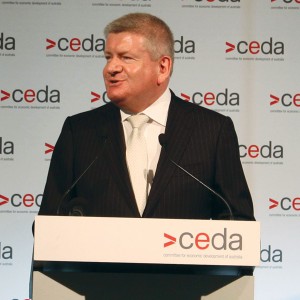 Don’t patronise those with disability and don’t play the shame game with employers. This was the blunt message from Assistant Minister for Social Services, Mitch Fifield, in a recent speech to the Committee for Economic Development (CEDA) Disability Employment Agenda.
Don’t patronise those with disability and don’t play the shame game with employers. This was the blunt message from Assistant Minister for Social Services, Mitch Fifield, in a recent speech to the Committee for Economic Development (CEDA) Disability Employment Agenda.
“We need to stop having conversations about disability and start having conversations about employment,” Senator Fifield said, admitting to frustration at all levels. “Everyone is frustrated. I’m frustrated. DES providers are frustrated. People with disability are frustrated and employers are frustrated – because they tend to be the punching bag in the public debate on disability employment.”
Senator Fifield was prepared to sing the praises of employers however, because he believed there will be no jobs without them. “I don’t want people to think that government has necessarily done something for the employment of people with disability simply by virtue of passing a new law or announcing a new program. What I want is for government to play its part in giving people with disability and employers the support they need. Help create an environment where people are judged not by the manifestation of their disability, but by their skills, qualifications and capacity to contribute to the workforce.”
Senator Fifield also announced the creation of a Department of Social Services Taskforce to develop what is currently the disability employment system into a more choice driven and employer focused model. Although he admitted this model for a better system would not come from government but from employers, service providers and job seekers with a six month consultation period encouraging all stakeholders to contribute. “From meetings with employers and people with disability I know the answer is not one size fits all so if we need a system with different elements then that is what we will do.”
He said that large employers liked the rapid employment model where national recruitment organisations have a pool of trainee ready to go. For smaller business, supports like wage subsidies and on the job training were important. For other SMEs, they may not have a specific job, instead a number of tasks that, with the assistance of a DES provider, a person with disability could be employed to do.
“I want to use the next three years to develop a new model for Disability Employment. We need a circuit breaker. 2018 is that circuit breaker.”
He highlighted some ideas as to how that might happen:
- Where employers, people with disability and employment service providers interact with each other in a digital marketplace; where employers choose whether they want to deal directly with potential employees, or through intermediaries
- Where job seekers have access to an ‘employment account’ they can use to purchase support, such as generalised or niche employment services, training, workplace assistance and on occasion, subsidy. Where a component of support, NDIS-like, attaches to the individual to be deployed by them
- Where people with disability are able to purchase training that helps them into a career, not just a first job
- Where disability service providers specialise in particular industries or fields, like childcare, hospitality or business services.
The Taskforce will take a life course approach and ask the question: “What would we do differently at key points in someone’s life if employment is our aim? We need to determine what needs to be done at critical milestones in someone’s life if people are to survive and thrive in the workforce.”
The minister said while there might be attitudinal issues about people with disability this was not an employer-specific issue, but a community issue. He also referred to the inquiry being held by the Human Rights Commission into barriers for people with disability getting into the workforce.(See story this issue).
